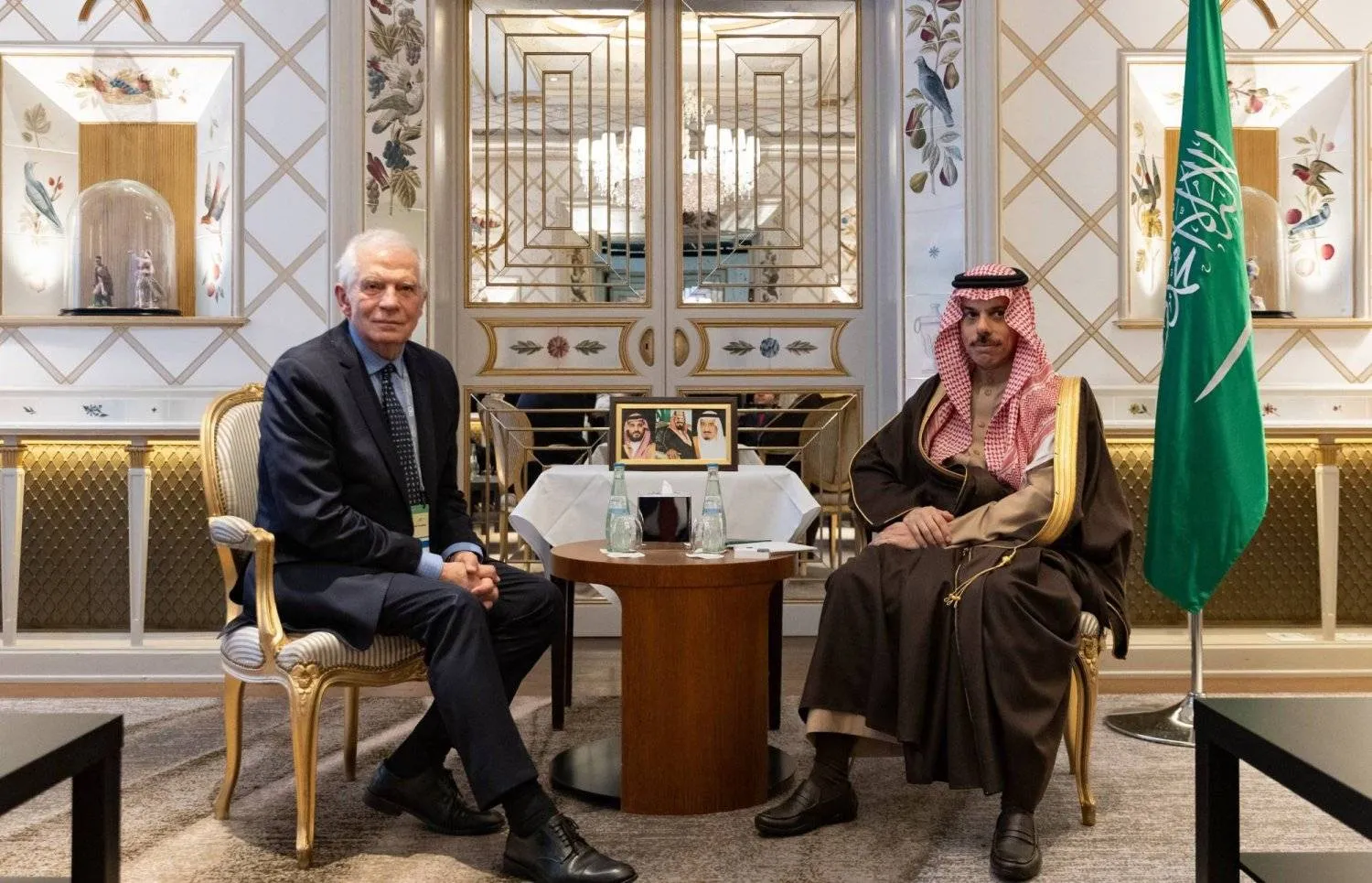Saudi Foreign Minister Prince Faisal bin Farhan warned on Saturday that Israel's approach to the war in Gaza does not enhance its security but rather further increases threats to it.
Prince Farhan stressed that most Palestinians support the two-state solution, cautioning that if a solution is not reached, "the next explosion will be worse."
The Saudi Foreign Minister said in a panel discussion on the sidelines of the Munich Security Conference 2024 that Israel's "excessive response" in Gaza would inevitably inflame the feelings, saying it could lead to an increase in extremism.
The death toll is approaching 30,000 civilians, and at least 17,000 children have become orphans as a result of the ongoing crisis, said the FM, adding that the "tragedy we are witnessing" would mobilize many emotions and risks revitalizing the idea that coexistence is not possible.
Prince Faisal stressed that Saudi Arabia's priority now is to deal with the catastrophic humanitarian situation in Gaza and focus on a ceasefire, the withdrawal of Israelis from Gaza, and increasing aid to the Palestinians.
He added, "It is unacceptable that we have not yet been able to resolve the simple issue of access for humanitarian goods into Gaza."
The Saudi minister also reiterated that the path to regional security and stability could be realized through the establishment of a Palestinian state, calling on the international community to focus on this.
The top diplomat indicated that the Kingdom is not in direct talks with Israel, asserting that there are no relations with Tel Aviv.
Riyadh confirmed through the US that "the highest priority is to address the humanitarian crisis and end the conflict," said bin Farhan, adding that normalization discussions can be opened afterward.
He stressed that the priority in discussions with Israel after its resumption "will be the establishment of a Palestinian state."
The FM said the Palestinians have the right to self-determination, the most important solution to ensure international security and stability.
Prince Faisal bin Farhan added that Saudi Arabia's normalization with Israel depends on the Arab Peace Initiative.
"Normalization of relations with Israel depends on implementing the Arab Peace Treaty. We do not talk to them directly," he said.
He explained that Palestinians must be able to decide their fate to ensure sustainable security, which requires difficult decisions within Israel as well.
Prince Faisal refused to blame any party for the delay in reaching a peace agreement, saying it can't be placed on any side, but the time has come to put all efforts to achieve peace, including those who stood as an obstacle whether it was Hamas, the Palestinian Authority, or Israel.
For his part, Egyptian Foreign Minister Sameh Shoukry said that Egypt informed Israel that the deportations of Rafah residents is a "red line" and constitutes a threat to Egypt's national security.
Speaking at the same panel, Shoukry added that there are catastrophic consequences of displacing the population of Gaza.
The Egyptian FM said that the lack of political will within the international community has obstructed reaching a peace agreement between the Israelis and the Palestinians over the past years, adding that both parties must make concessions to reach an agreement.
On the sidelines of the Munich Security Conference, Prince Faisal held a series of bilateral meetings where he met Diplomatic Advisor to French President Emmanuel Bonne, EU High Representative for Foreign Affairs and Security Policy Josep Borrell, Leader of British Labour Party Keir Starmer, and Shadow Foreign Minister David Lammy.
On Friday, Prince Faisal bin Farhan met with his British counterpart, David Cameron.
The two officials addressed the bilateral relations and ways to enhance them, the latest developments in the Gaza Strip.
Prince Faisal also met with Canadian Foreign Minister Melanie Joly and Deputy Prime Minister and Foreign Minister Mariya Gabriel.
Saudi FM Warns of Worse ‘Flare-Up’ if Peace Agreement Fails

Saudi FM Faisal bin Farhan during his meeting with EU's Josep Borrell in Munich (SPA)

Saudi FM Warns of Worse ‘Flare-Up’ if Peace Agreement Fails

Saudi FM Faisal bin Farhan during his meeting with EU's Josep Borrell in Munich (SPA)
لم تشترك بعد
انشئ حساباً خاصاً بك لتحصل على أخبار مخصصة لك ولتتمتع بخاصية حفظ المقالات وتتلقى نشراتنا البريدية المتنوعة







